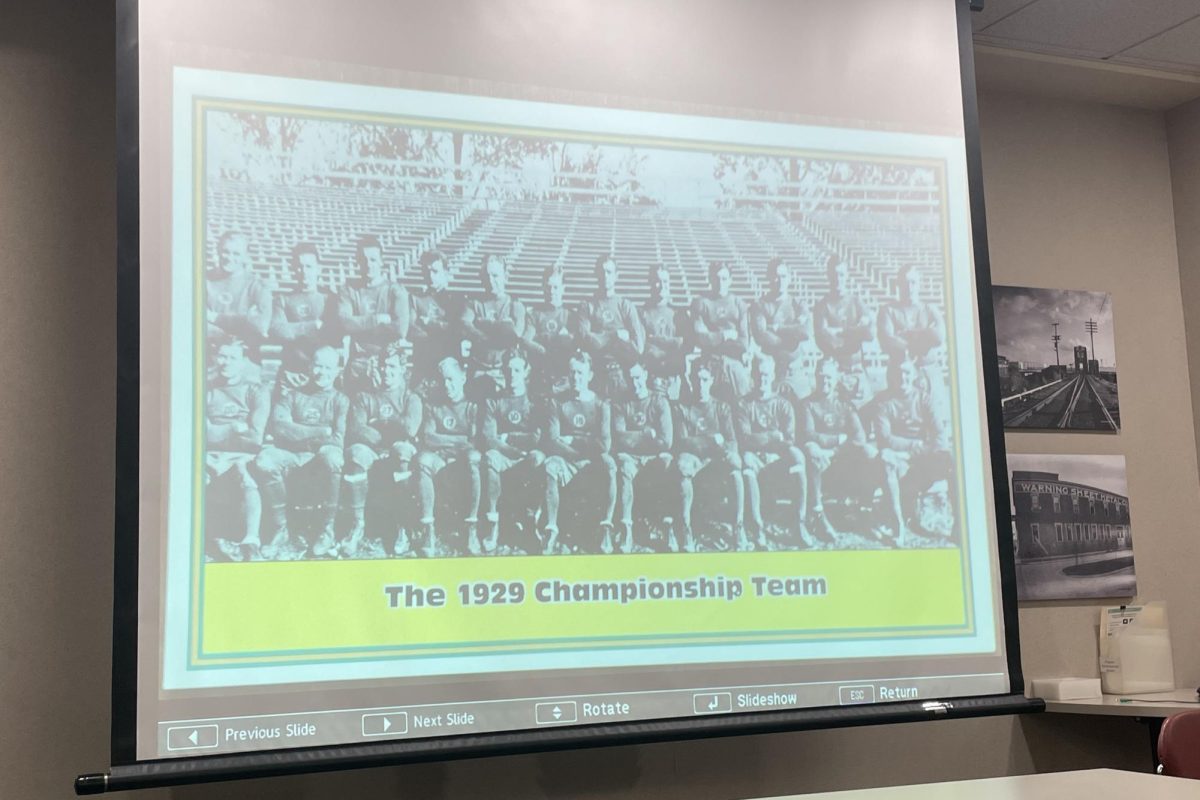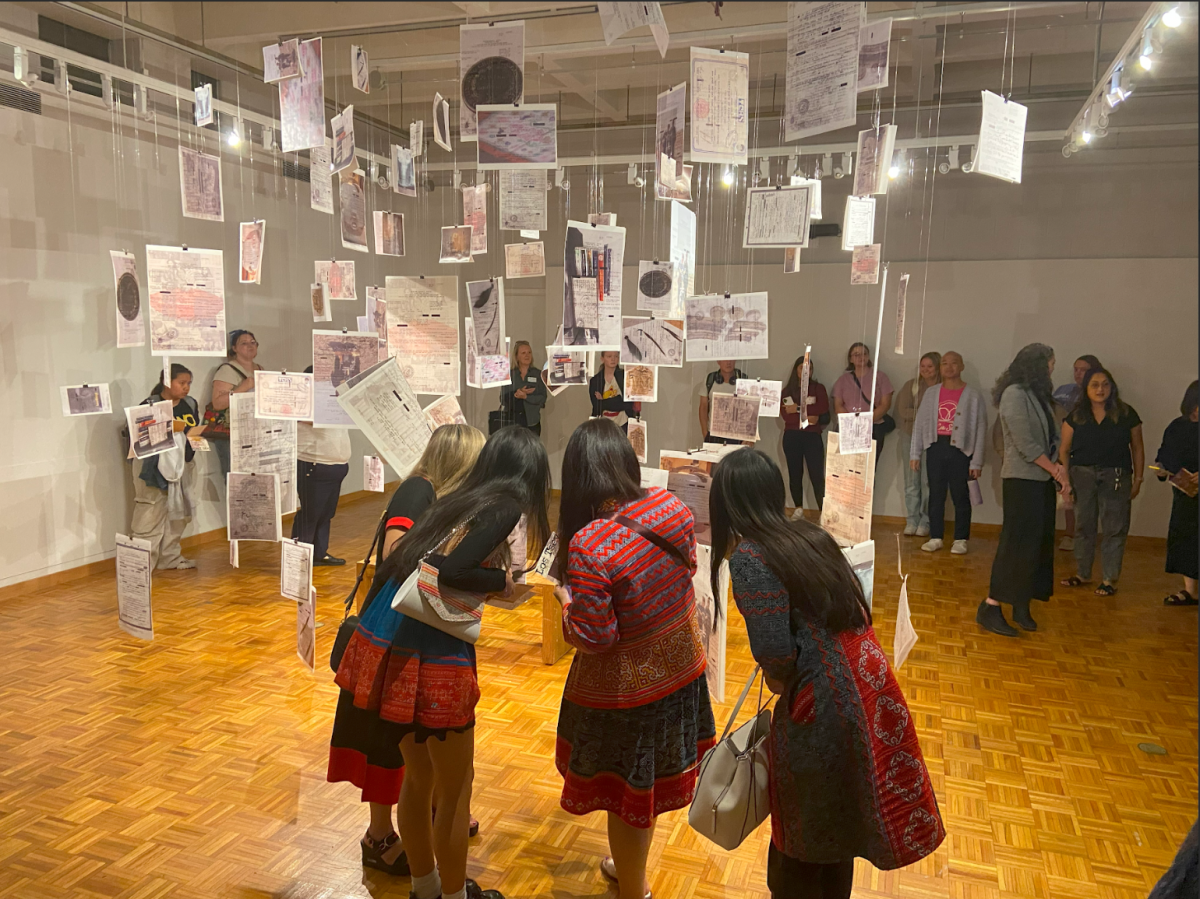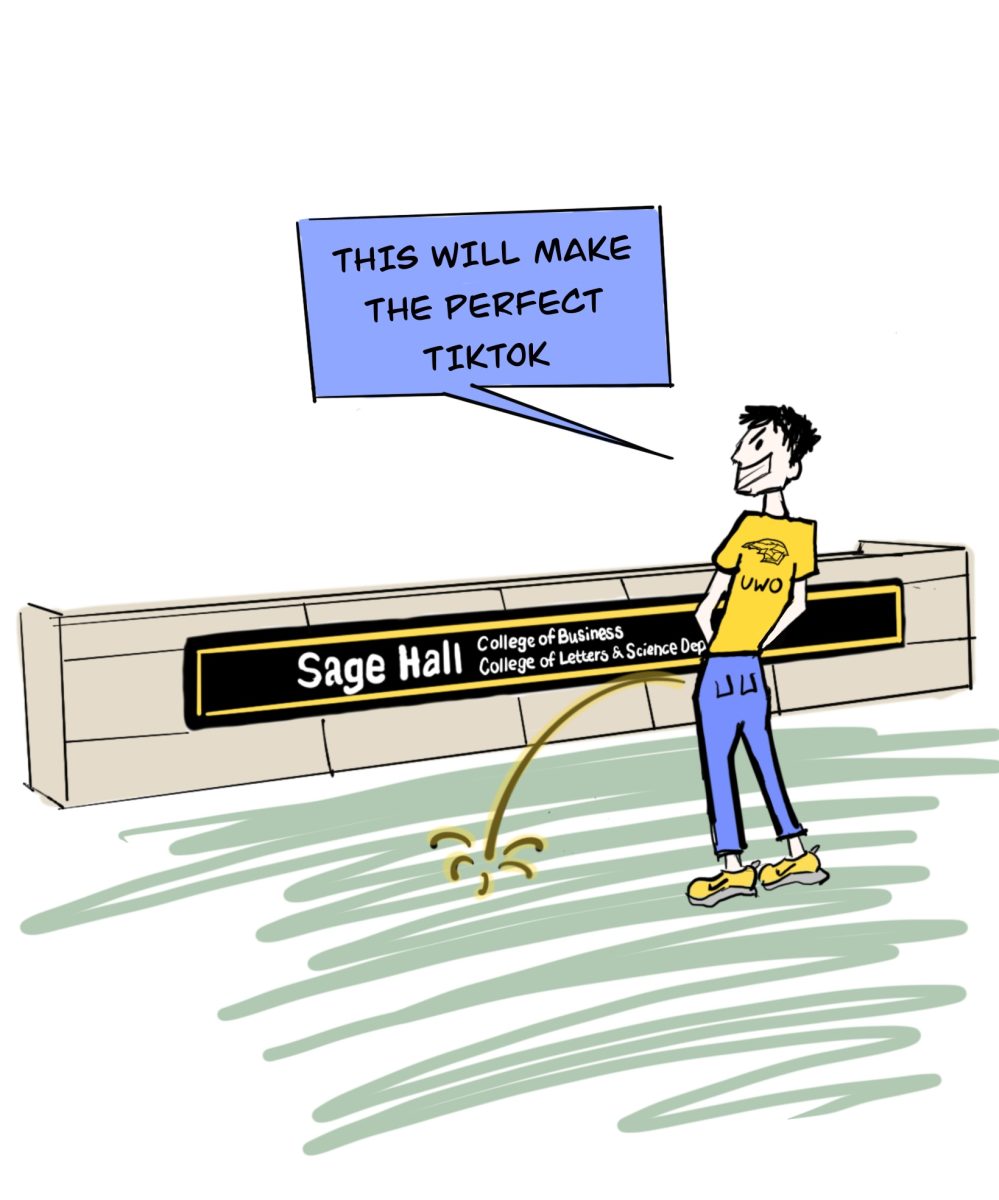Native American author and lawyer Gyasi Ross spoke to students, faculty and community members about Native Americans and other racial issues in Reeve Memorial Union Friday.
Ross used personal and historical storytelling to convey his message of inclusion and social progress.
“I truly believe stories are the most powerful tool in the world,” Ross said.
Senior Chris Taylor said it was great connecting the stories Ross had to offer with his own life.
“On a personal level, he was really helping out with my problems and what’s going on with my life, and I didn’t even know him,” Taylor said. “Finding a new connection was great for me.”
Ross discussed figures such as Martin Luther King Jr., Martin Luther and Albert Einstein to put forth his call for change.
“What we’re doing right now doesn’t seem to be working,” Ross said. “We need to create opportunity for those who have not spoken.”
Ross also shared the story of his uncle, Billy Frank, who received the Presidential Medal of Honor for fighting state law that outlawed Native Americans in Washington from fishing in regular areas with state citizens.
“Uncle Billy was arrested 52 times for fighting for what he believed in,” Ross said. “He fought until change was made.”
Ross called for all different groups of people to create change.
“When we all come together everyone benefits, and that will create a new type of genius,” Ross said.
Senior Jordan Thornton said Ross brought a fresh perspective to campus, as opposed to the usual speakers he sees.
“That factor of inclusion, you can see in the crowd here that it is a more diverse crowd,” Thornton said. “Most speakers on campus I feel are more aimed at a Caucasian audience, where a speaker with a different ethnic background brings in a more diverse audience and different types of people.”
Taylor said he hoped Ross would bring a new view as a speaker that hasn’t been offered before.
“I hoped he would bring something new to the table, something I could learn,” Taylor said.
Ross emphasized young people as the most powerful people to change the world.
“Young folks are part of that conversation; they have to be,” Ross said. “We have been taught this lie that you are all tomorrow’s leaders, but you’re not. You’re today’s leaders.”








